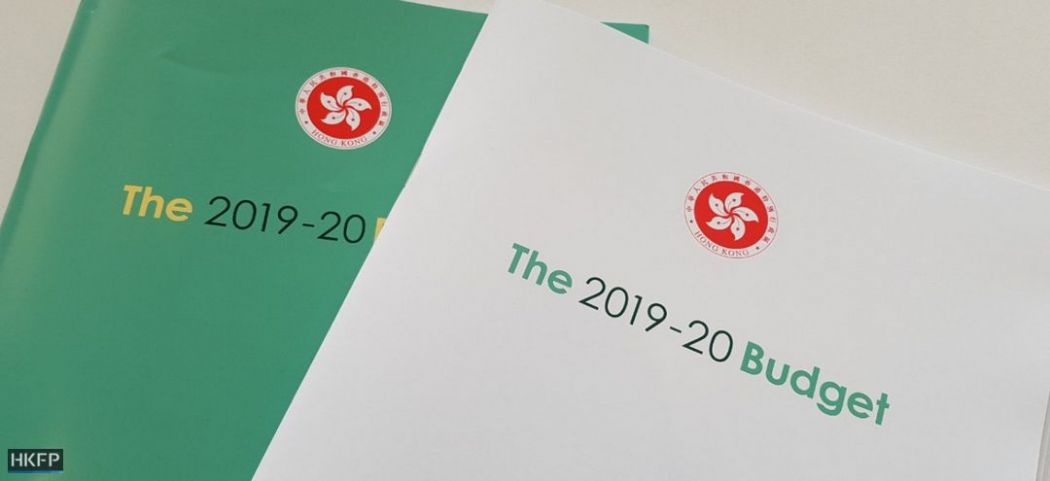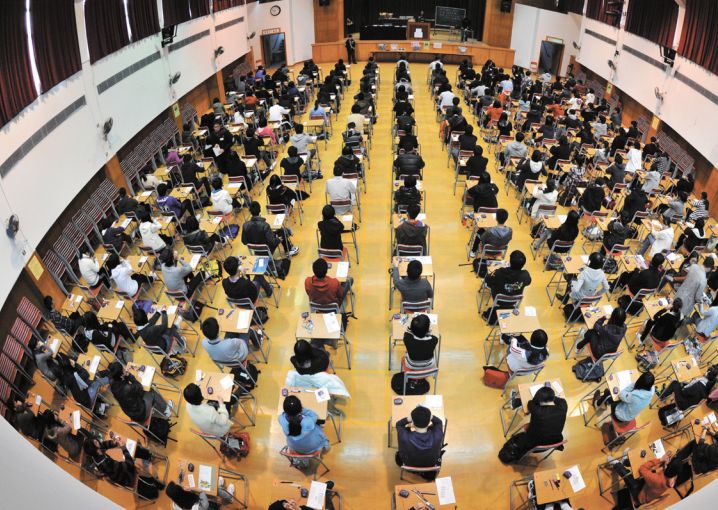The Hong Kong government has announced one-off measures such as tax and rates reductions, as well as extra allowances for the elderly and poor.
The annual budget issued by Financial Secretary Paul Chan on Wednesday stated that the revised surplus for the 2018-19 financial year stood at HK$58.7 billion – much smaller than the HK$148.9 billion in the 2017-18 financial year. The surplus for 2019-20 is estimated to be HK$16.8 billion.
There were fewer one-off measures this year and no cash handout scheme for the public.

Asked about the reduction of one-off measures, Chief Executive Carrie Lam told reporters that she understood the public had expectations of measures such as tax and rates reductions and subsidies for students.
“But we will relieve people’s burden using many social service policies – such as expenditure in social welfare and healthcare,” she said.
A government source told HKFP that one-off measures in the annual budget totalled HK$42.8 billion. The sum is smaller than the HK$64.1 billion in the last budget, but higher than the average of HK$30 billion in one-off measures provided in the past.
Tax cuts
The annual budget included some familiar measures. Salaries tax, tax under personal assessment and profits tax for 2018-19 will be cut by 75 per cent – subject to a ceiling of HK$20,000.
Chan said reducing salaries tax and tax under personal assessment will benefit 1.91 million taxpayers and reduce government revenue by HK$17 billion. Reducing profits tax will benefit 145,000 taxpayers and will reduce government revenue by HK$1.9 billion.

The ceiling is HK$10,000 lower than that in the 2018-19 budget. Ahead of the budget speech, a government source told HKFP that around 900,000 people earning over HK$400,000 per year would not benefit. But they said the government has taken other measures to relieve the burden of middle-class people, and lowering the ceiling to HK$20,000 was only intended to return it to an affordable level for the government.
Rates will be waived for four quarters of 2019-20, subject to a ceiling of HK$1,500 per quarter for each rateable property. It is estimated to benefit 3.29 million properties and reduce government revenue by HK$15 billion.

Welfare measures
Recipients of Comprehensive Social Security Assistance payments, Old Age Allowance, Old Age Living Allowance or Disability Allowance will receive an extra allowance equal to one month of the standard rate. It will involve an additional expenditure of about HK$3.84 billion.
Meanwhile, recipients of the Working Family Allowance and Work Incentive Transport Subsidy will also receive the equivalent of an extra month’s allowance, costing around HK$149 million.
Students in need will receive a one-off grant of HK$2,500 to support learning, totalling HK$890 million.
A government source said around 35,700 students will receive the benefits, which will be higher than the number of recipients last year.

The government will pay the examination fees for school candidates sitting the 2020 Hong Kong Diploma of Secondary Education Examination, costing around HK$160 million.
The exam fee waiver followed a similar measure last year, but a government source said they did not plan to make it a recurrent measure.
Eligible elderly people will also receive a one-off HK$1,000 worth of vouchers for the Elderly Health Care Voucher Scheme, costing around HK$1.02 billion.
